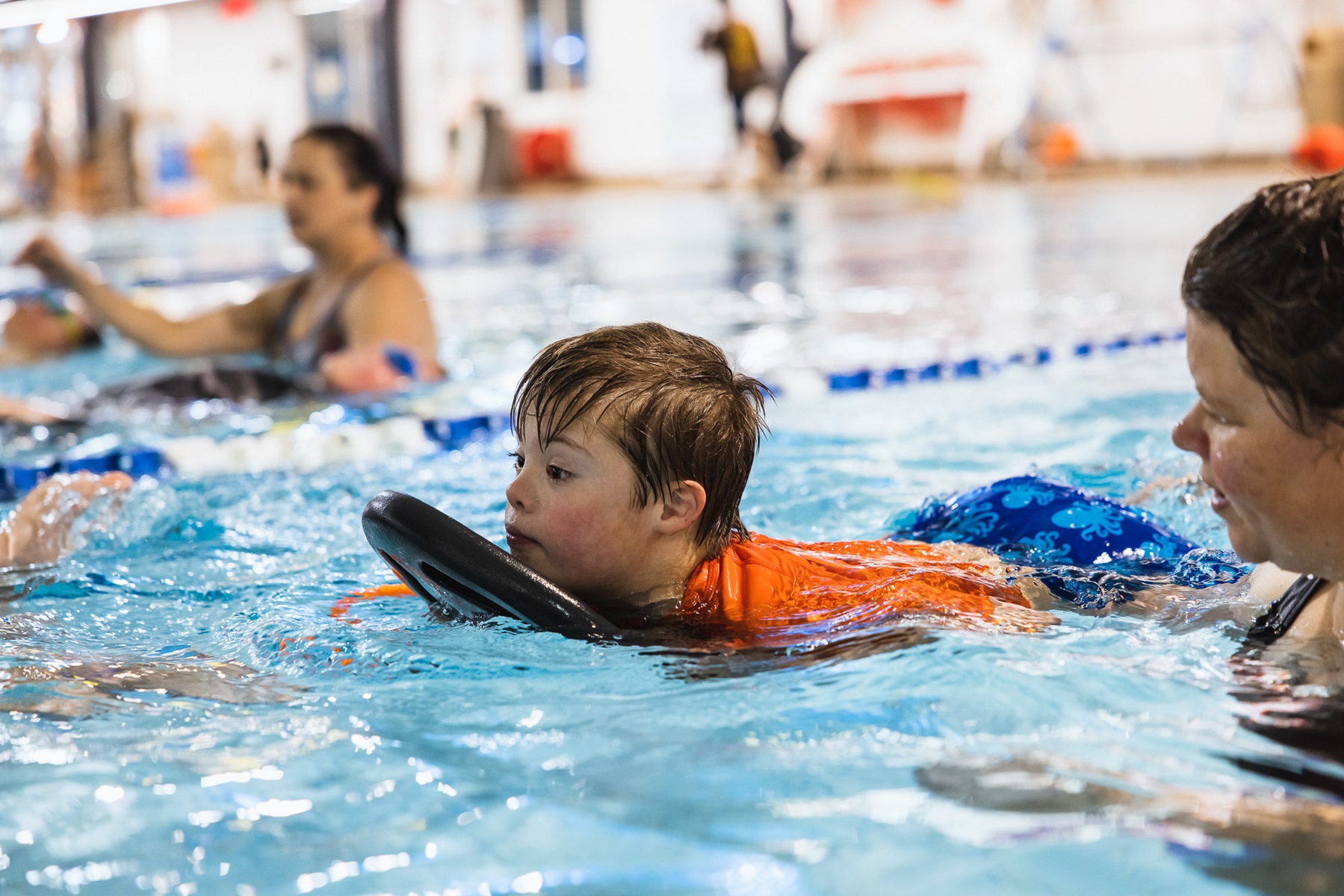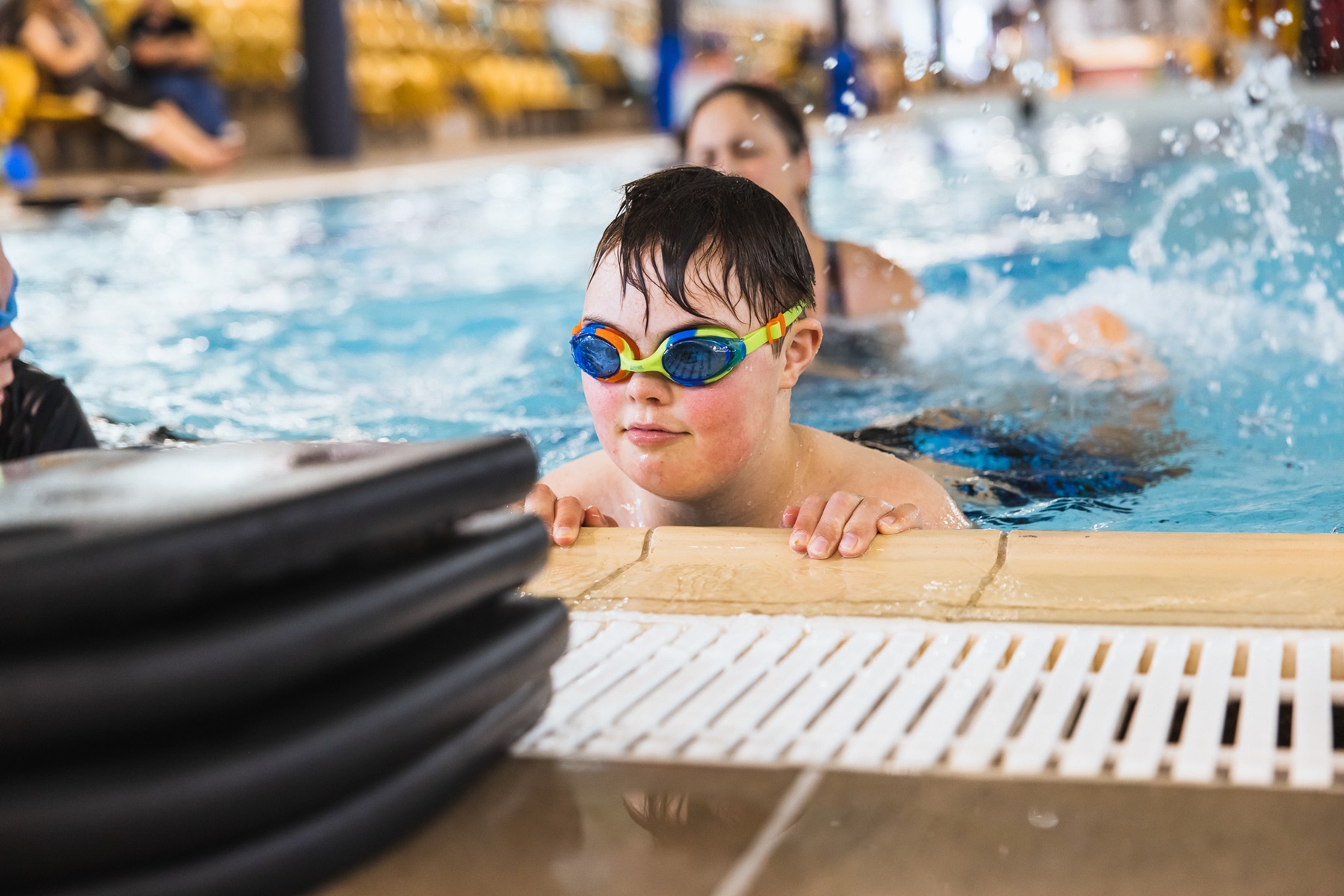How Swimming NZ is helping turn fears into freedom
How Swimming NZ is helping turn fears into freedom
Disability Inclusion Fund

In Aotearoa, where we are surrounded by oceans, lakes and rivers, learning to swim is a vital life skill. But for many disabled tamariki and rangatahi, especially those with high needs, the water hasn’t always felt accessible.
That’s where Swimming New Zealand is making waves. Their inclusive programme connects swim schools with specialist schools to deliver regular, tailored swim lessons for disabled and neurodivergent tamariki and rangatahi. The sessions focus on supporting young people to build a relationship with the water, prioritising skill development, water safety and therapeutic benefits.
Parents describe the programme as a lifeline for their children’s growth, sensory regulation and social connection.
“This is the first time my child has ever felt comfortable around water. It’s been life-changing for our family,” said one parent.
Katie O’Brien, a Special Education Teacher at Bloomfield School, has seen the difference these sessions have made for her students.
“Each session is a chance to connect with the kids on their level, in their time. The water gives them freedom. They smile, they try, and they shine – that’s everything,” said Katie.

When Swimming New Zealand recognised how few neurodivergent young people were participating in swimming, they knew something had to change. So they developed a pilot programme to increase the opportunities available and to remove some of the common barriers.
Supported by Sport NZ’s Disability Inclusion Fund, the programme has grown steadily over the past 3 years – from 5 to 9 participating specialist schools, delivering over 360 sessions last year alone.
Paralympian Camerion Leslie, Swimming New Zealand’s Disability and Para Swimming Participation Manager, says the programme is about more than just teaching swim lessons – it’s also helping families connect in new ways.
Cameron shared how one child’s experience in the programme led to wider benefits.
“The water became a source of joy and confidence for him, and now swimming is a family activity for them,” he said.
The programme has been successful in helping more disabled young people gain confidence in the pool, but Cameron said getting it off the ground wasn’t easy in the early days.
“We were naive about how hard it was going to be to get people on board. So many specialist schools are at capacity and working through their own complex daily routines,” says Cameron.
Those initial setbacks prompted Swimming New Zealand to build stronger relationships and a better understanding of the realities specialist schools face, especially in supporting neurodivergent students.
“We recognised the opportunity to engage with a part of the [disability] sector that we hadn’t before,” said Cameron.
And it’s working. The programme continues to grow, with more and more swim schools now offering dedicated disability and neurodiverse swim classes. Looking ahead, Swimming New Zealand will continue to expand the programme and embed it as a permanent part of their work with disabled young people.
It’s a shift towards greater inclusion and accessibility, and a future where every child can enjoy being in the water.
